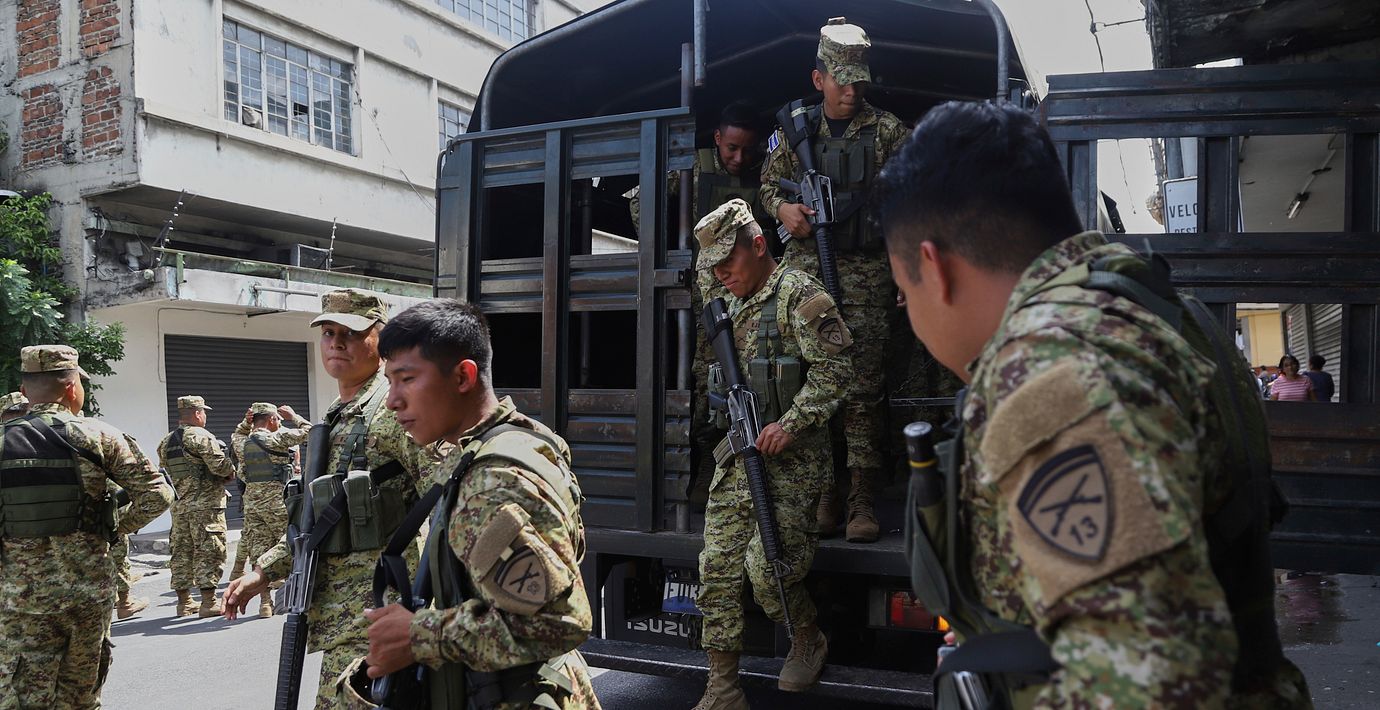
Organisationen förföljs i El Salvador – går i exil
Människorättsorganisationen Cristosal i El Salvador har upphört med all sin verksamhet i landet och gått i exil. Anledningen är presidenten Nayib Bukeles hårdare grepp om makten i landet, rapporterar Reuters.
Gruppen blev en uppmärksammad aktör i landet när den började utreda korruption i regeringen. Men i tre år har ett nationellt undantagstillstånd varit utlyst och nu bedömer gruppen att det är för osäkert att fortsätta verka i landet.
– När det blev tydligt att regeringen var beredd att åtala oss och att det inte fanns någon möjlighet till försvar eller en opartisk rättegång, då blev det ohållbart att ta dessa risker, säger organisationens vd Noah Bullock till Reuters.
bakgrund
Nayib Bukele
Wikipedia (en)
Nayib Armando Bukele Ortez (Spanish: [naˈʝiβ buˈkele]; born 24 July 1981) is a Salvadoran politician and businessman who has served as the 81st president of El Salvador since 2019.
In 1999, Bukele established an advertising company and worked at an advertising company owned by his father, Armando Bukele Kattán. Both companies advertised election campaigns for the Farabundo Martí National Liberation Front (FMLN) political party. Bukele entered politics in 2011. In 2012, he joined the FMLN and was elected mayor of Nuevo Cuscatlán. Bukele served until his 2015 election as Mayor of San Salvador, where he served until 2018. In 2017, Bukele was ousted from the FMLN. He founded the Nuevas Ideas political party shortly afterward and pursued a presidential campaign in 2019. After the Supreme Electoral Court (TSE) refused to register his party, Bukele ran for president with the Grand Alliance for National Unity (GANA) and won with 53 percent of the vote.
In July 2019, Bukele implemented the Territorial Control Plan to reduce El Salvador's 2019 homicide rate of 38 per 100,000 people. Homicides fell by 50 percent during Bukele's first year in office. Digital news outlet El Faro and the United States Department of State accused Bukele's government of secretly negotiating with gangs to reduce the homicide rate. After 87 people were killed by gangs over one weekend in March 2022, Bukele initiated a nationwide crackdown on gangs, resulting in the arrests of over 85,000 people with alleged gang affiliations by December 2024. El Salvador's homicide rate decreased to 1.9 homicides per 100,000 in 2024, one of the lowest in the Americas. Bukele passed a law in 2021 that made bitcoin legal tender in El Salvador and promoted plans to build Bitcoin City. By 2025, El Salvador's bitcoin experiment had largely been unsuccessful. In June 2023, the Legislative Assembly approved Bukele's proposals to reduce the number of municipalities from 262 to 44 and the number of seats in the legislature from 84 to 60. He ran for re-election in the 2024 presidential election and won with 85 percent of the vote after the Supreme Court of Justice reinterpreted the constitution's ban on consecutive re-election.
Bukele is highly popular in El Salvador, where he has held a job approval rating above 75% during his entire presidency and averages above 90% approval. He is also popular throughout Latin America. Before his presidency, Bukele considered himself a member of the radical left. Although he has not explicitly aligned himself with any political ideology, political analysts have described Bukele as both a populist and a conservative. Bukele has been described by some as authoritarian and an autocrat. Critics say El Salvador has experienced democratic backsliding under Bukele, as he has dismantled democratic institutions, curtailed political and civil liberties, and attacked independent media and the political opposition. In February 2020, Bukele ordered 40 soldiers into the Legislative Assembly building to intimidate lawmakers into approving a US$109 million loan for the Territorial Control Plan. After Nuevas Ideas won a supermajority in the 2021 legislative election, Bukele's allies in the legislature voted to replace the attorney general and all five justices of the Supreme Court of Justice's Constitutional Chamber. Bukele has attacked journalists and news outlets on social media, drawing allegations of press censorship.
Omni är politiskt obundna och oberoende. Vi strävar efter att ge fler perspektiv på nyheterna. Har du frågor eller synpunkter kring vår rapportering? Kontakta redaktionen



